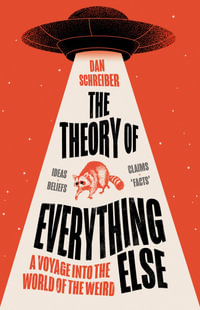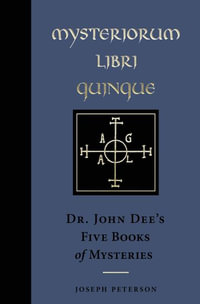
Reality, Truth and Evil
Facts, Questions and Perspectives on September 11, 2001
By: T. H. Meyer, Matthew Barton (Translator)
Paperback | 22 April 2005
At a Glance
Paperback
$42.95
Aims to ship in 15 to 25 business days
ISBN: 9781902636665
ISBN-10: 190263666X
Published: 22nd April 2005
Format: Paperback
Language: English
Number of Pages: 160
Audience: General Adult
Publisher: Temple Lodge Publishing
Country of Publication: GB
Edition Type: Annotated
Dimensions (cm): 21.6 x 13.8 x 1.27
Weight (kg): 0.23
Shipping
| Standard Shipping | Express Shipping | |
|---|---|---|
| Metro postcodes: | $9.99 | $14.95 |
| Regional postcodes: | $9.99 | $14.95 |
| Rural postcodes: | $9.99 | $14.95 |
How to return your order
At Booktopia, we offer hassle-free returns in accordance with our returns policy. If you wish to return an item, please get in touch with Booktopia Customer Care.
Additional postage charges may be applicable.
Defective items
If there is a problem with any of the items received for your order then the Booktopia Customer Care team is ready to assist you.
For more info please visit our Help Centre.
You Can Find This Book In
This product is categorised by
- Non-FictionPolitics & GovernmentInternational Relations
- Non-FictionSociety & CultureSocial Issues & ProcessesViolence in Society
- Non-FictionReligion & BeliefsAlternative Belief SystemsEclectic & Esoteric Religions & Belief Systems
- Non-FictionHistoryEarliest Times to Present Day21st Century History from 2000 onwards
- Non-FictionHistoryRegional & National HistoryHistory of the Americas
- Non-FictionMind, Body, Spirit























